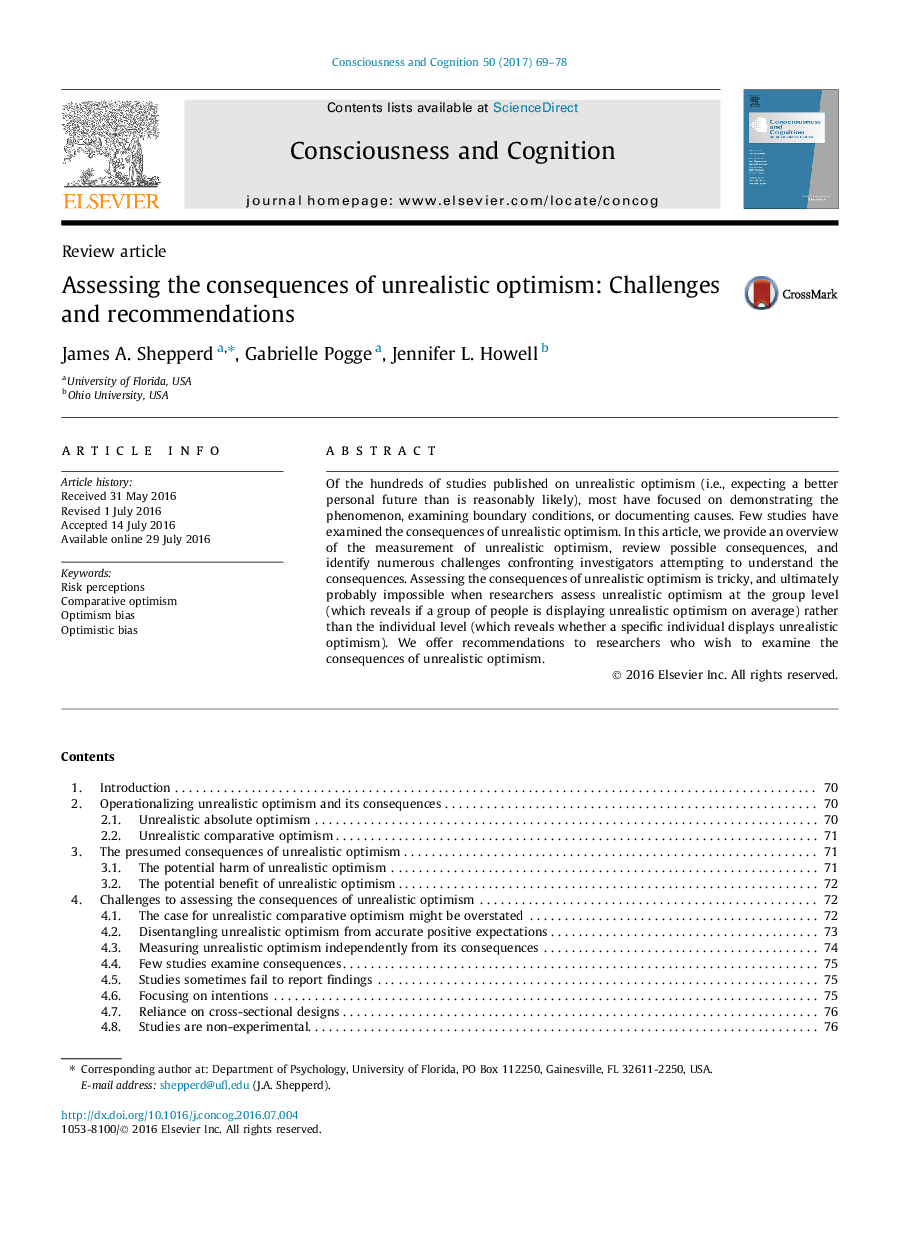| Article ID | Journal | Published Year | Pages | File Type |
|---|---|---|---|---|
| 5041713 | Consciousness and Cognition | 2017 | 10 Pages |
Of the hundreds of studies published on unrealistic optimism (i.e., expecting a better personal future than is reasonably likely), most have focused on demonstrating the phenomenon, examining boundary conditions, or documenting causes. Few studies have examined the consequences of unrealistic optimism. In this article, we provide an overview of the measurement of unrealistic optimism, review possible consequences, and identify numerous challenges confronting investigators attempting to understand the consequences. Assessing the consequences of unrealistic optimism is tricky, and ultimately probably impossible when researchers assess unrealistic optimism at the group level (which reveals if a group of people is displaying unrealistic optimism on average) rather than the individual level (which reveals whether a specific individual displays unrealistic optimism). We offer recommendations to researchers who wish to examine the consequences of unrealistic optimism.
